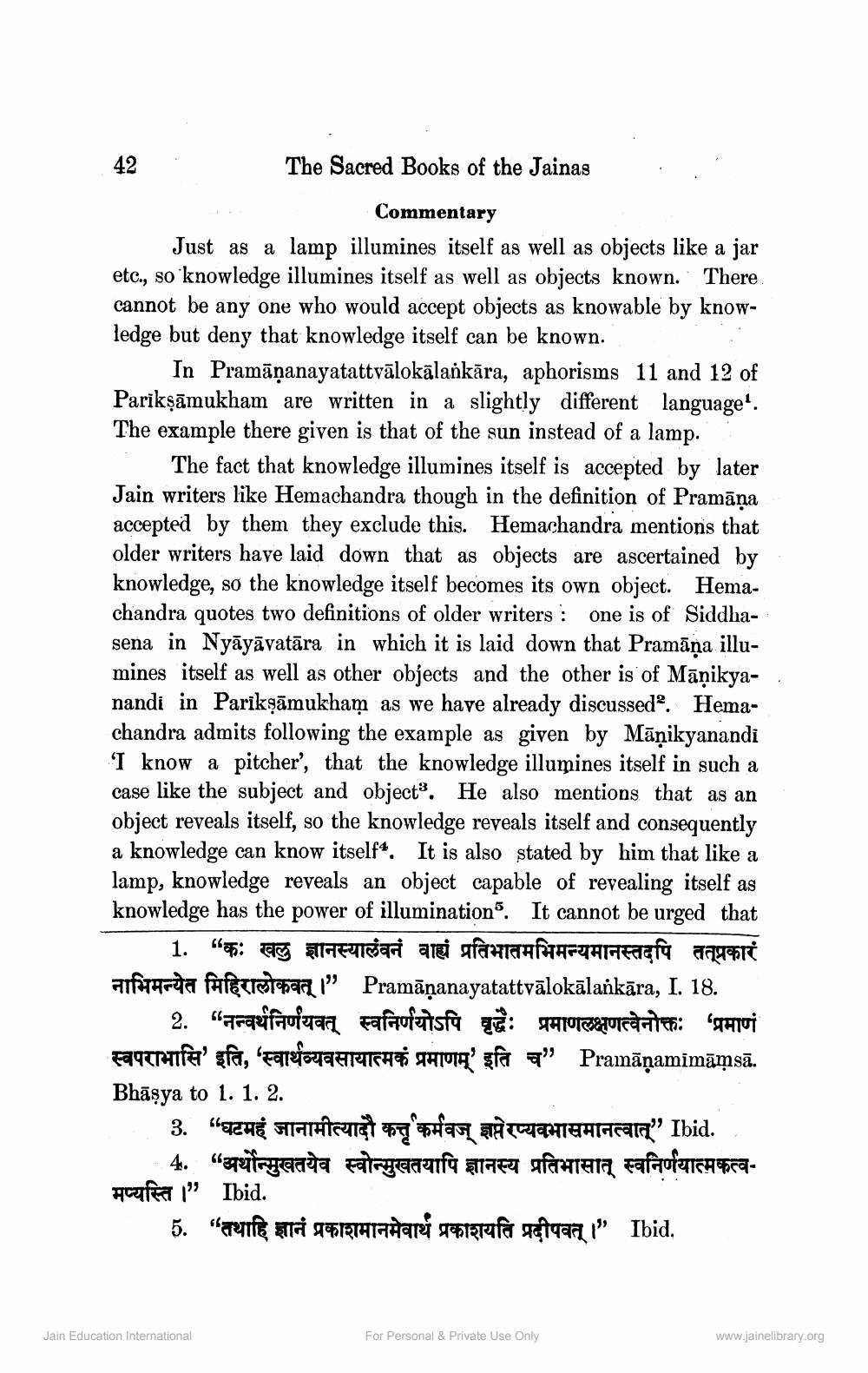________________
42
.
The Sacred Books of the Jainas
Commentary Just as a lamp illumines itself as well as objects like a jar etc., so knowledge illumines itself as well as objects known. There cannot be any one who would accept objects as knowable by knowledge but deny that knowledge itself can be known.
In Pramāṇanayatattvālokālankāra, aphorisms 11 and 12 of Parikşāmukham are written in a slightly different language'. The example there given is that of the sun instead of a lamp.
The fact that knowledge illumines itself is accepted by later Jain writers like Hemachandra though in the definition of Pramāņa accepted by them they exclude this. Hemachandra mentions that older writers have laid down that as objects are ascertained by knowledge, so the knowledge itself becomes its own object. Hemachandra quotes two definitions of older writers: one is of Siddhasena in Nyāyāvatāra in which it is laid down that Pramāṇa illumines itself as well as other objects and the other is of Māņikyanandi in Parikṣāmukham as we have already discussed. Hemachandra admits following the example as given by Māņikyanandi 'I know a pitcher', that the knowledge illumines itself in such a case like the subject and object'. He also mentions that as an object reveals itself, so the knowledge reveals itself and consequently a knowledge can know itself. It is also stated by him that like a lamp, knowledge reveals an object capable of revealing itself as knowledge has the power of illuminations. It cannot be urged that
1. : ay HEUTSCH argi afãHTHAFTARFTER aquari alfararta Feciaal 1" Pramāṇanayatattvālokālankāra, I. 18.
2. "नन्वर्थनिर्णयवत् स्वनिर्णयोऽपि वृद्धः प्रमाणलक्षणत्वेनोक्तः 'प्रमाणं Fatrafe' sfa, 'rareARTHA TATUTA for a" Pramāṇamimāņsā. Bhāșya to 1. 1. 2.
3. WELCHE FATICA A Hat T HTHATrata" Ibid.
4. "अर्थोन्मुखतयेव स्वोन्मुखतयापि ज्ञानस्य प्रतिभासात् स्वनिर्णयात्मकत्वHofer I” Ibid.
5. "en ka gAITATAHARI nerafa gertaan!” Ibid.
Jain Education International
For Personal & Private Use Only
www.jainelibrary.org




